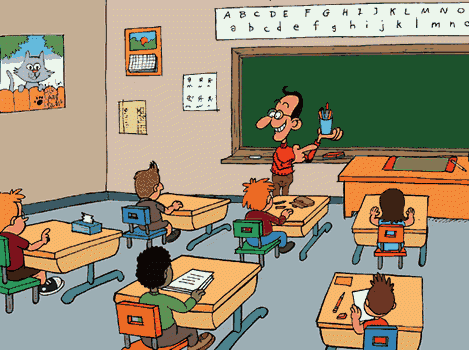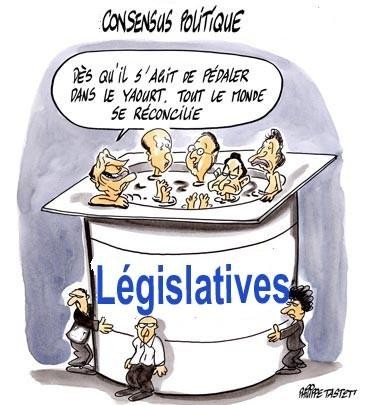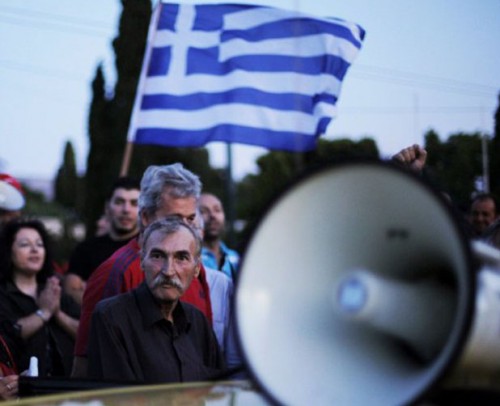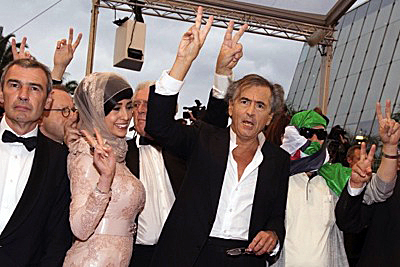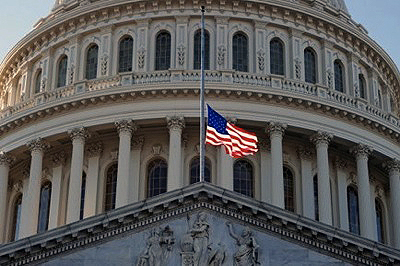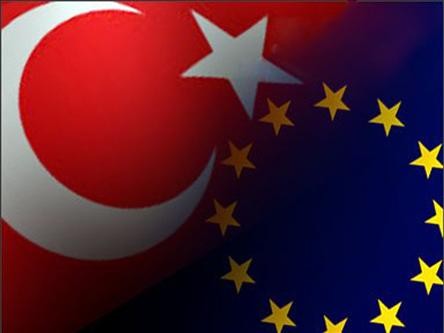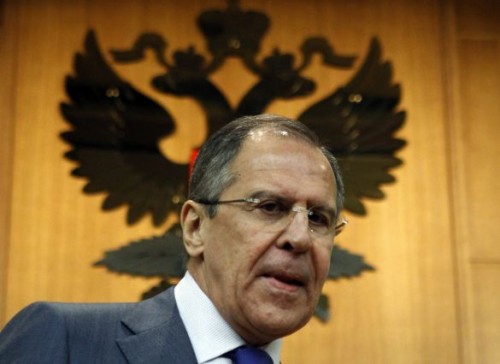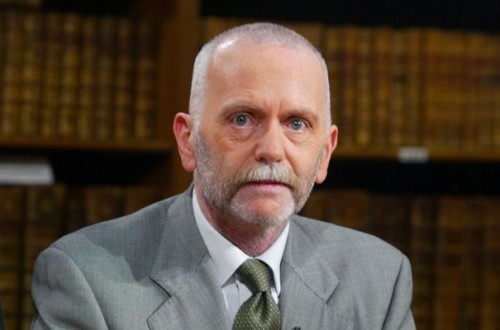Krantenkoppen
Juni 2012 (1)
RUSSIA PREPARES ARMY FOR SYRIAN DEPLOYMENT.
"President Vladimir Putin ordered the general staff to work out a plan for military operations (…) in Syria. The units being prepared for an intervention are the 76th Division of airborne forces (an especially experienced unit of the Russian army), the 15th Army Division, as well as special forces from a brigade of the Black Sea fleet, which has a base in the Syrian port of Tartus.
The details of the operational plan are being prepared by the (…) Collective Security Treaty Organisation, to which most of the post-Soviet states belong, as well as the Shanghai Cooperation Organization, to which China and Russia belong. (…) Deployment depends on the decision of the Russian government and the UN. However, the plans also foresee that the troops might intervene without UN approval."
http://www.informationclearinghouse.info/article31559.htm
BLOEDBAD HOULA MOGELIJK WERK VAN REBELLEN.
"Syrische rebellen zijn verantwoordelijk voor het bloedbad van Houla op 25 mei. Daarbij werden 108 mannen, vrouwen en kinderen vermoord. (…) Als gevolg van Houla wezen bijna alle westerse landen (…) de ambassadeurs (…) van Syrië uit, waardoor het regime van president Assad volledig geïsoleerd raakte.
Maar de Duitse krant Frankfurter Algemeine Zeitung kreeg een heel ander verhaal te horen van Syrische opposanten afkomstig uit de streek, die op basis van geloofwaardige getuigenverslagen het waarschijnlijk verloop van de aanval op Houla reconstrueerden. (…) De slachtoffers zouden voornamelijk alawitische en sjiitische families zijn in het voor 90% soennitische Houla (…), door de rebellen beschouwd als collaborateur. Alles lijkt dus meer op een godsdienstige eliminatie.
Ook de in Damascus wonende Nederlandse Arabist Martin Janssen zet vraagtekens bij de beweringen dat het bloedbad van Houla het werk is van het regime. (…) Hij baseert zich op verscheidene bronnen. De rooms-katholieke organisatie Fides meldt dat steeds meer christenen en alawieten uit de regio naar Libanon vluchten omdat ze geviseerd worden door gewapende bendes. Voorts is er het klooster van Qara, waar veel mensen naartoe gevlucht zijn. (…) En op 25 mei waren er ook 2 Russische journalisten in Houla die vastgesteld zouden hebben dat de meeste slachtoffers alawieten waren. "
http://www.vandaag.be/buitenland/99003_bloedbad-houla-mogelijk-het-werk-van-rebellen.html?utm_source=twitterfeed&utm_medium=twitter
SYRIEN: DIE KRIEGSTREIBER BENUTZEN DEN ALTEN MASSAKER-TRICK.
"Das Massaker in Hula erinnert an das ‘Massaker von Racak‘ in Kosovo. (…) Gegenwärtig instrumentalisieren die westlichen Medienbosse ein Massaker, daß sich in dem westsyrischen Marktflecken Hula zugetragen hat.
Die Meldung wurde am Samstag von der westlichen Propaganda-Organisation mit Berufung auf das ‘Syrische Überwachungszentrum für Menschenrechte‘ in London verbreitet. Die Organisation behauptete, daß die syrische Regierungsarmee die Stadt Hula mit Artillerie beschossen habe.
Eine Schuld der syrischen Regierung an dem Massaker ist nicht bewiesen – im Gegenteil. Doch das Ziel der Übung ist nicht die Wahrheitsfindung. Vielmehr benützen die westlichen Kriegstreiber den Vorfall, um die syrische Regierung zu beschuldigen und die eigene Öffentlichkeit auf einen US-Überfall auf das Land vorzubreiten.
Die syrischen Behörden haben kategorisch dementiert, an dem Massaker beteiligt zu sein: (…)‘Getötet wurden Kinder, Frauen und Greise – die syrische Armee handelt nicht auf diese Weise‘. (…)
Die Webseite ‘nocheinparteibuch.wordpress.com’ wies am 28. Mai darauf hin, daß sogar in deutschen Systemmedien berichtet wurde, daß sogenannte Freischärler in Hula von Haus zu Haus gegangen seien und dabei wahllos Menschen, darunter Kinder, ermordet hätten. Die Bilder der ermordeten Kinder würden – zumindest in einigen Fällen – darauf hinweisen, daß sie durch Schüsse oder Stich-, Schnitt- und Hiebwaffen ermordet wurden: ‘Opfer von Artillerie sehen anders aus.‘ Der Blog weist darauf hin, daß der Hinweis auf die sogenannten Freischärler plötzlich wieder aus den Internet-Berichten verschwand.
Fazit: Die Morde wurden von Al-Kaida-nahen, wahhabitischen Extremisten ausgeführt. Diese werden von der NATO und den Golf-Staaten als angebliche syrische ‘Opposition‘ unterstützt."
http://kreuz.net/article.15267.html
MEN MOET STOPPEN MET LEUGENS OVER SYRIE.
Pater Daniël Maes, een 73-jarige pater Norbertijn, woont sinds 2010 in Syrië (…). Tijdens een kort verblijf in België getuigde hij (onder andere in Terzake op de VRT) over de toestand in Syrië. (…):
"Ik zie vooral 2 mechanismen die het Westen gebruikt in de desinformatiecampagne die we ook in het geval van Irak en van Libië hebben gezien. Vooreerst is er de demonisering van de leider, hier dus Assad. Verder het stelselmatig omdraaien van slachtoffer en agressor. De agressors worden in de Westerse pers als slachtoffers voorgesteld en de slachtoffers als agressors. Er zijn me genoeg verhalen bekend van aanvallen door bandieten of terroristen, waarbij er een cameraploeg aanwezig is die alles doorgeeft aan Al Jazeera, die het dan presenteert als een aanval van het regeringsleger. In werkelijkheid wordt het leger door de buitenlandse druk strenge regels opgelegd. In Homs smeekten sommige burgers het leger ‘Kom ons beschermen’. Maar het leger vreesde een grote slachting en wilde eerst de gewapende groepen lokaliseren. (…)
In een opiniestuk op de website deredactie.be (2 juni) citeert Martin Janssen, een arabist die in Damascus woont, uit een rapport over de gebeurtenissen in Houla (bij een bombardement werden daar tientallen volwassenen en kinderen gedood, volgens het Westen het werk van het regeringsleger) dat hij ontving van religieuzen uit het klooster in Qâra, waar pater Maes naar terugkeert: ‘(…) Gewapende rebellen, wier aantal wordt geschat op tussen de 700 en 800 personen, zijn op donderdag 24 mei richting Hama getrokken waar ze het al-Watani ziekenhuis aanvielen en de bewakers doodden. Ooggetuigen verklaren: ‘Vervolgens zijn ze het ziekenhuis binnengevallen waar de gewapende rebellen alle aanwezigen hebben vermoord en nadat ze de lijken naar buiten hadden gesleept, hebben ze het ziekenhuis in brand gestoken. Op video’s is te zien dat de rebellen de lijken hadden gewikkeld in lakens die het Arabische opschrift ‘ministerie van Gezondheid’ hadden’. In Tal Daw, een dorpje in de buurt van Houla, hebben deze gewapende opstandelingen vervolgens hele alawitische families vermoord. Al deze lijken werden vervolgens in Houla voor de moskee verzameld'."
http://mediawerkgroepsyrie.wordpress.com/2012/06/13/men-moet-stoppen-met-leugens-over-syrie-quon-cesse-de-mentir-en-occident-nl-fr/
PRIESTER DANIEL MAES BERICHT VANUIT SYRIE.
"Het Westen stelt zich voor als ‘de internationale gemeenschap’ maar vertegenwoordigt in werkelijkheid een steeds kleiner deel van deze internationale gemeenschap. Rusland bv. is ondertussen als werkelijke vriend van Syrië flink aanwezig in het land, weet wat er echt gebeurt en meldt het ook, terwijl het Westen zijn opgeschroefde verontwaardiging met vervalste berichtgeving probeert te etaleren. Meer dan ooit blijven wij hopen op een vrede, vooraleer het Westen met zijn schatrijke corrupte Arabische bondgenoten dit land heeft kunnen ontwrichten. (…)
De grenscontroles verlopen met de gewone drukte. Aan de eerste grenspost in Syrië hangt een grote spotprent tegen de muur: een Amerikaan die Syrië als een ballon probeert op te blazen met daar onder de tekst 'Het vuur dat ze hier aansteken, zal hun as worden'. Ook op weg naar huis is er niets speciaals te merken. Alle beelden en foto’s van de president staan of hangen er nog zoals voorheen. Misschien is er hier of daar een wachtpost bij gekomen. Het doet me denken aan de journalist van Le Vif-L’Express die me 2 dagen voor mijn vertrek nog kwam opzoeken voor een interview. Hij had zelf na Pasen nog Syrië bezocht en er een reportage over geschreven onder de titel: Waar is de revolutie? Hij had niet veel bijzonders gemerkt, tenzij hier en daar wat georkestreerde herrie. En het zijn deze bendes die nu het grote gevaar vormen. (...)
Uiteindelijk zijn het Amerika met Europa en zijn corrupte Golfstaten die Syrië willen destabiliseren om ook hier hun eigen macht te vestigen, zoals ze al in zovele landen gedaan hebben. Tot heden is er in Syrië geen sprake van een opstand tegen de regering of van een burgeroorlog. De VN-waarnemers zijn uiteindelijk alleen maar hier om het leger te verlammen, terwijl de bendes ongestraft verder kunnen doen. Rusland is alom aanwezig maar laat (…) begaan om groter kwaad te vermijden. Het leger laat ook begaan omdat de media de kleinste stap van het leger kunnen misbruiken. Als Kofi Anan met zijn volk weg is, bestaat er een kans dat Syrië met de hulp van Rusland zelf orde op zaken kan stellen en die doodseskaders van de CIA en consoorten uiteindelijk ook overwonnen kunnen worden. Ondertussen leven we hier in een versterkte burcht."
http://mediawerkgroepsyrie.wordpress.com/2012/06/08/priester-daniel-maes-bericht-vanuit-syrie-7-juni-2012/
CONFLICT SYRIE OOK INFORMATIEOORLOG.
“Volgens de Franse bisschop Philip Tournyol Clos zijn de opstandelingen vooral buitenlandse strijders. De Grieks-katholieke (Melkitische) Archimandriet deed tegenover het Vaticaanse persbureau Fides verslag van zijn reis naar Syrië. Daar bezocht hij onder meer Damascus, Aleppo en (…) Homs. ‘(…) De realiteit ter plaatse is heel anders dan het desinformerende beeld dat de Westerse media opleggen’, aldus Mgr. Clos.
In (…) Homs hebben de opstandelingen 2 wijken bezet, Diwan Al Bustan en Hamidieh, waar zich ook alle kerken en bisschopshuizen zich bevinden. Volgens de archimandriet bieden die een ‘totaal desolate aanblik’. ‘De kerk van Mar Elian is voor de helft verwoest en die van Onze-Lieve-Vrouw-van-de-Vrede is nog steeds bezet door de rebellen. Alle christelijke huizen zijn door hun bewoners met achterlating van al hun eigendommen verlaten en zijn zwaar beschadigd door de gevechten.’
De wijk Hamidieh is nog steeds in handen van verschillende zwaar bewapende en van elkaar onafhankelijke strijdgroepen die worden betaald door Qatar en Saoedi-Arabië. Alle 138.000 christenen zijn gevlucht naar Damascus en Libanon, terwijl anderen hun toevlucht hebben gezocht op het omliggende platteland. Een priester is gedood en een ander is door 3 kogels geraakt. Er wonen er nog maar een paar, maar de 5 bisschoppen zijn moeten vluchten naar Damascus en Libanon.
‘(…) Het bloedige werk van niet uit Syrië afkomstige avonturiers dreigt het land nog verder te destabiliseren’, aldus Mgr. Clos. Hij beroept zich op de vroegere Franse ambassadeur, Eric Chevallier, die dit soort informatie meldde, maar altijd werd afgewezen. Tegelijkertijd zou er voortdurend informatie in het nadeel van het regime vervalst worden. (…)
‘De Syriërs zijn eenvoudige en vrolijke mensen’, zegt de bisschop. ‘Christenen leven er in vrede en (…) erkennen dat ze zich nog nooit zo vrij hebben kunnen voelen en hun rechten volledig erkend hebben gezien als onder deze regering.’
Volgens Mgr. Philip Tournyol Clos zijn Syrische christelijke en islamitische leiders het erover eens dat ‘de vijanden van Syrië enkele leden van de Moslimbroederschap over hebben gehaald om de broederlijke betrekkingen die vanouds tussen de moslims en christenen bestaan te vernietigen’. ‘Maar dat is ze tot op heden niet geluk en beide gemeenschappen zijn meer eensgezind dan ooit.’
De Syrische soldaten staan nog steeds tegenover buitenlandse strijders, huurlingen, Libiërs, Libanezen, militanten uit de Golf, Afghanen en Turken.”
http://www.katholieknieuwsblad.nl/nieuws/item/2158-%E2%80%98conflict-syri%C3%AB-ook-informatie-oorlog%E2%80%99.html
SANCTIES TEGEN SYRIE DODELIJKER DAN REGIME ASSAD.
"Met hun sancties tegen Syrië en steun voor de rebellen produceren de VN en de westerse landen 'meer slachtoffers dan het regime zelf'. Dit zei de katholieke bisschop van Aleppo, Mgr. Giuseppe Nazzaro (...).
De uit Italië afkomstige franciscaan keerde zich tegen een te snelle veroordeling van het regime van president Assad door de Verenigde Naties. Er is een 'morele plicht' eerst de omstandigheden, achtergronden en aanstichters van de moordpartijen van de afgelopen weken op te helderen alvorens veroordelingen uit te spreken, aldus de apostolisch vicaris van Aleppo. (...)
Nazzaro zei verder dat er momenteel een campagne aan de gang is van Qatar, Saoedi-Arabië en andere Arabische Golfstaten om Syrië te 'vernietigen'."
http://www.katholieknieuwsblad.nl/nieuws/item/2171-sancties-tegen-syrië-dodelijker-dan-regime-assad.html
EEUW LANG GEEN GAY PRIDE IN MOSKOU.
"Russische homo's en lesbiennes mogen de komende 100 jaar geen gay pride organiseren. Dat heeft het stadsbestuur beslist. Eerder al oordeelde een rechtbank dat het verbod op gay pride parades tot mei 2112 wettig is."
http://www.standaard.be/artikel/detail.aspx?artikelid=DMF20120608_101
"DIT IS EEN KATHOLIEK LAND EN GEEN VAN FLIKKERS DIE ZIEKTES EN AFWIJKINGEN PROMOTEN."
"In Kroatië is een zitting van het parlement geschorst omdat meerdere parlementsleden homofobe uitlatingen hadden gedaan. (...) 'Dit is een katholiek, normaal land en geen land van flikkers die ziektes en afwijkingen promoten', zei afgevaardigde Zoran Vinkovic."
http://www.demorgen.be/dm/nl/990/Buitenland/article/detail/1447117/2012/06/01/Dit-is-een-katholiek-land-en-geen-van-flikkers-die-ziektes-en-afwijkingen-promoten.dhtml
7 JUNE 2012: RUSSIA DISPLAYS INTERCONTINENTAL NUCLEAR BALLISTIC SUPERIORITY.
"On Thursday, 7 June 2012, Russia conducted 2 ballistic missile launches. (...)
The Bulava R-30 [is] Russia’s most advanced generation of intercontinental ballistic missiles which represents the future of the Russian missile arsenal. With a range of 8000 km, it can be equipped with 10 hypersonic warheads with a yield between 100 and 150 kilotons each on independently-controlled trajectories. Its flight characteristics and highly sophisticated electronic measurement instruments are technically far more advanced than those of their U.S. rivals, to the point that the missile defense system currently being developed by NATO has already been superseded. (...)
Without an identical show of strength on the part of the Pentagon in the coming days, the successful test launches of the Bulava and Topol have shifted the global ballistic balance in favor of the Russian Federation."
http://www.voltairenet.org/7-June-2012-Russia-displays
SERBIA SAYS 'NYET' TO NATO MEMBERSHIP.
"President-elect Tomislav Nikolic, who is looking for more intensive relations with Russia, has promised that Serbia will never become a member of NATO. (…) He added that he wasn’t sure if Serbia would be admitted into the EU unless ‘we recognize the independence of Kosovo and Metohija.’
Many Serbs are ambivalent, if not outright hostile to the idea of restoring full relations with the EU, not to mention the NATO. In 1999 Belgrade was on the receiving end of a massive 78-day bombing campaign by the alliance (…) aimed at removing Yugoslav forces from Kosovo. ‘Our constitution forbids us to abandon Kosovo and Metohija’, Nikolic said. (…)
Nikolic heaped praise on Moscow, which (…) has never placed demands on the Serbian people. (…) Nikolic went on to thank Russia for supporting Serbia, while stressing that his country ‘would never join NATO’. He also suggested that Putin choose a date to visit the Balkan country. ‘You have earned your prestige with the way you govern Russia. And although Serbia is on a road to the EU … we will be building out our relations with Russia meanwhile’, the Serbian president-elect said at the meeting in Moscow with Putin. (…)
It should be noted that Serbia also ranks high on Russia's list of respected allies, which was proven by the fact that Nikolic was Putin’s first meeting with a foreign leader since being elected. Meanwhile, Russia is ready to allocate the second loan tranche of $800 million to Serbia, Putin assured his Serbian guest. (…) Earlier, Russia already provided a $200 million loan to Serbia in an effort to consolidate the country's budget. (…) Putin also referred to Serbia as Russia’s ‘spiritual brother’."
http://rt.com/politics/serbia-russia-nato-eu-crisis-377/
AZERI'S VERHOGEN PACHTGELD RUSSISCH RADARSTATION MET 4.000%.
"Rusland dreigt een strategisch belangrijk radarstation in Azerbeidzjan, in de zuidelijke Kaukasus, kwijt te spelen. (...) Bakoe verhoogde immers het pachtgeld voor de installatie met meer dan 4.000%. In plaats van de jaarlijkse som van 7 miljoen dollar (...) wil Bakoe plots 300 miljoen dollar (...).
Deskundigen in Moskou wijzen voor de uiterst forse verhoging van het huurgeld met de beschuldigende vinger naar de VS. Washington wil wegens haar conflict met het aan Azerbeidzjan grenzende Iran zelf de regio 'controleren', luidde het. De relaties tussen Moskou en Bakoe verlopen ook niet vlekkeloos, gezien Rusland optreedt als beschermheer van Armenië, de aartsvijand van Azerbeidzjan wegens de conflicten om de enclave Nagorno-Karabach.
Het na de implosie van de Sovjet-Unie afgesloten verdrag voor het radarstation dat een radius van ongeveer 6.000 km controleert, loopt dit jaar af."
http://www.demorgen.be/dm/nl/990/Buitenland/article/detail/1443506/2012/05/24/Azeri-s-verhogen-pachtgeld-Russisch-radarstation-met-4000.dhtml
COMPUTERS ALS SPION.
"De oorsprong van het virus is nog onbekend. Maar de besmette pc's bevonden zich vooral in Iran. En de Israëlische minister Moshe Ya'alon liet tijdens een interview (...) vallen dat hij het gebruik van dergelijke technieken gerechtvaardigd vindt. (...) Hij voegde eraan toe dat Israël sterk staat op technologisch vlak en dat dit 'allerlei mogelijkheden opent voor ons'. Het Iraanse nieuwsagentschap Fars interpreteert die uitspraken als een schuldbekentenis."
http://www.standaard.be/artikel/detail.aspx?artikelid=IO3QL6H1
RUSLAND ONDERZOEKT OF SUPERJET CRASHTE DOOR SABOTAGE VS.
"In een artikel onder de titel 'Zijn de Amerikanen betrokken bij de crash van de Superjet?' citeert de [Russische massakrant Komsomolskaja Pravda] bronnen binnen de geheime militaire diensten die stellen dat de handelsrivalen van Rusland in de burgerluchtvaartsector belang hebben bij een mislukking van het Soechoj Superjet-project. (...) 'Wij weten dat ze een speciale technologie hebben, net als wij, waardoor signalen vanop de grond geblokkeerd kunnen worden, wat foute analyses van de vluchtparameters oplevert'. De crash vond plaats tijdens een demonstratievlucht om de Superjet 100 te promoten. Dat toestel, het nieuwste model van vliegtuigbouwer Soechoj, is de grote hoop voor de toekomst van de Russische burgerluchtvaart."
http://www.demorgen.be/dm/nl/990/Buitenland/article/detail/1443447/2012/05/24/Rusland-onderzoekt-of-Superjet-crashte-door-sabotage-VS.dhtml
MALI: SELF-DETERMINATION OR RECOLONALISATION?
"The nationalist aspirations of the Tuareg have been manipulated by foreign governments and politicians to undermine Mali's territorial integrity. Islamic extremists in Mali are backed by NATO's allies in the feudal tyrannies of Saudi Arabia and the Gulf States and have been directly supplied by Qatar by air at the northern Mali city of Gao. These ethnic and Islamic insurgencies have brought chaos to northern and central Mali. (…) The insurgencies threaten Mali's territorial integrity and also the stability of North Africa's main regional power, Algeria. (...)
What has happened in Mali makes no sense unless seen in the geopolitical context of neocolonial terrorist aggression by the NATO powers and their allies. The scale of that military and economic aggression is global, reaching from the Korean Peninsula, to the South China Sea, through Afghanistan, Iran, Iraq and Syria, through Somalia, Sudan and Libya, to Mali and its neighbours and across the Atlantic to Latin America. Their mineral wealth and oil and gas reserves make Mali, Niger and Algeria targets for yet another neocolonial NATO intervention. (…)
The confluence of NATO neocolonial aggression in North and West Africa follows a familiar pattern. Like Ivory Coast President Ouatarra, Burkina Faso's President Blaise Compaoré is also a sinister enforcer for the NATO powers. Compaoré came to power in 1987 by betraying and murdering legendary revolutionary leader Thomas Sankara. Ouatarra and Compaoré are determined defenders of (…) French interests in West Africa. Their role is the same as that of ruthless repressive leaders like Paul Kagame of Rwanda and Yowere Museveni in Uganda. They defend NATO country corporate interests in Africa against the expansion of Chinese trade and investment interests. (...)
Algeria views with great suspicion the French government's undisguised desire to get unrestricted use of the Malian military air base at Tessalit near the Algerian border, ostensibly for operations against terrorist groups and organized crime. Algeria's leaders, like other African leaders, may come to regret the passive role they took in relation both to NATO's aggression against Libya and NATO country manipulation of the secession of Southern Sudan.
Surrounded now by unsympathetic or downright hostile governments and extremist Islamic movements, Algeria can hardly welcome the collapse of central authority in Mali. (...)
The NATO powers have shown in Lebanon, Libya and Syria that they will work closely with Islamic extremists if it suits their neocolonial agenda. They do so either directly as they did in Afghanistan in the 1980s or, as they have done more recently, in alliance with the feudal tyrannies of Saudi Arabia and the Gulf States who have directly supported terrorism against the peoples of Lebanon, Libya and Syria.
The double-game played by the NATO powers in relation to Islamic extremist movements is matched by their hypocrisy in addressing organized crime and narcotics in the region. Narcotics, people trafficking and contraband of all kinds are lucrative multinational businesses generating hundreds of billions of dollars a year. That money flows into the Western financial system propping up its virtually insolvent major banks, as even the relevant UN organization has acknowledged."
http://lizzie-phelan.blogspot.com/2012/05/mali-self-determination-or.html
TAALLESSEN EN STRIKTE REGELS IN KRAAKPAND.
"Met hun sociaal engagement gaan de krakers in tegen de Warschause woonpolitiek die wolkenkrabbers boven betaalbaar wonen verkiest. Hun aanhang groeit.
Je zou het niet meteen verwachten in een krakerspand, maar in het Warschause Kolektyw Przychodnia houden ze van regels. Op een poster in de vergaderzaal van het afgedankte tbc-ziekenhuis worden ze een voor een opgesomd. 1. We respecteren andermans werk. We houden alles netjes. 2. Vlees en andere niet-vegetarische producten zijn taboe. 3. Hier is geen plaats voor drugs. 4. Tijdens vergaderingen zijn we altijd nuchter. (...)
Maar hun sociaal engagement heeft het begrip van het stadbestuur er niet groter op gemaakt. Toen de bewoners van Kolektyw Przychodnia enkele weken geleden hun ziekenhuis kraakten, verscheen onmiddellijk de politie op het toneel. Door op het dak te klimmen wisten ze het pand bezet te houden. Het was al de tweede keer in een maand tijd dat de Warschause politie de krakers het leven zuur maakt. In april was ze massaal aanwezig tijdens een poging een ander pand te ontruimen.
Het offensief van het stadsbestuur heeft tE maken met de groei van het aantal kraakpanden. Twee jaar geleden telde Warschau amper 1 pand, vorig jaar 2 en dit jaar 4. Het is niet veel in een stad van 1,7 miljoen inwoners, maar de toekomst oogt positief. Dankzij het optreden van het stadsbestuur hebben de krakers in heel Polen aan sympathie gewonnen. Tot enkele weken geleden hadden weinig Polen zelfs maar van hun bestaan gehoord.
Die positieve commentaren hebben de krakers te danken aan de woonpolitiek van het Warschause stadsbestuur. Dat zou meer aandacht hebben voor de bouw van wolkenkrabbers en winkelcentra dan voor de huisvesting van zijn inwoners. Burgemeester Hanna Gronkiewicz-Waltz, een partijgenote van premier Donald Tusk, wordt er door de krakers van beschuldigd Warschau in handen te geven van gewiekste vastgoedmakelaars. Vooral bij de privatisering van stadseigendom zou veel fout gaan. In plaats van de onteigeningen uit het communistische verleden ongedaan te maken komen de teruggeschonken panden vaak in handen van speculanten die de rechten op het onroerend goed voor een appel en een ei hebben afgekocht van de oorspronkelijke eigenaars.
(...) Met de bouw van kantoren of luxeflats kunnen miljoenen worden verdiend."
http://www.standaard.be/artikel/detail.aspx?artikelid=DMF20120606_00175036
EASTERN RIGHT.
"In part because Orthodox countries did not undergo the Enlightenment, the Orthodox way of thinking about social and political life is so far outside the Western experience that it can sometimes seem barely relevant to American challenges. On the other hand, Orthodoxy’s pre-modern traditionalism can be a rich new source of spiritual and cultural renewal."
http://www.theamericanconservative.com/articles/eastern-right-2/
WIE ZIT ER ACHTER DE 'ONAFHANKELIJKE BLOGSTER' YOANI SANCHEZ?
"De laatste dagen verschenen opnieuw een aantal artikels van de ‘onafhankelijke blogster’ Yoani Sánchez in de pers, o.a. in de gratis krant Metro. Yoani pretendeert er vervolgd te worden omwille van haar vrije mening over het Cubaanse regime. Een beetje duiding over haar persoon en haar geschiedenis ontbreekt in die berichten. Cubanismo vult dit hiaat graag aan.
(...) Yoani Sánchez is een speciaal individu in (...) de Cubaanse dissidentie. Nooit tevoren had een Cubaans dissident zoveel airplay in de media en zoveel internationale erkenning op zo korte tijd. In 2004, 2 jaar nadat ze naar Zwitserland verhuisd was, beslist ze terug te keren naar Cuba. In 2007 wordt ze actief lid van de Cubaanse 'dissidentie' door haar blog 'Generatie Y' op te starten. Ze wordt een fervente criticaster van de regering. Nooit heeft een Cubaans - en misschien wel van de hele wereld - dissident zoveel internationale prijzen verzameld in zo korte tijd. Het aardige daarvan is dat ze daardoor nu al ruimschoots geld heeft om comfortabel te leven op het eiland voor de rest van haar leven. In totaal heeft ze immers 250.000 euro's 'verdiend' met haar blog (…)!
Een gelekt ‘top secret’ bericht uit de SINA (de VS-vertegenwoordiging in Havana) onthult de nauwe relaties van de Amerikaanse regering met Yoani. Michel Parmly, een oud chef van de SINA die regelmatig met haar samen zat in zijn diplomatieke residentie, heeft volgens dit document zijn bezorgdheid geuit over Wikileaks: ‘Ik zou erg gegeneerd zijn moesten de vele gesprekken die ik met Yoani Sánchez had gepubliceerd worden.' (…)
In 2009 heeft de Westerse pers het interview dat ze had met Obama enorm gemediatiseerd. Yoani zei toen dat ze dezelfde vragen schriftelijk had voorgelegd aan Raúl Castro, maar dat die zich niet heeft verwaardigd erop te antwoorden. De Wikileaks-documenten tonen echter aan dat het een ambtenaar van de SINA is geweest, en niet Obama zelf, die de vragen beantwoorde. Straffer nog: de documenten stellen dat Sánchez nooit iets opstuurde naar Castro.
Naast haar blog heeft Yoani ook een Twitteraccount die 214.000 volgers had op 12/02/12. Slechts 32 ervan op Cuba. Zij zelf 'volgt’ meer dan 80.000 personen. Ze presenteert zich als volgt op haar blog: ‘Ik woon in Havana en vertel mijn leven hier in stukjes van 140 karakters. Ik twit via SMS, zonder toegang tot het internet’. Dat is nogal moeilijk te geloven: 80.000 personen volgen enkel via SMS en door één keer per week te internetten in een hotel?
Via www.followervonk.com kan je een analyse maken van de Twitterprofielen. Wat Yoani betreft, kan je zien dat ze sinds 2010 geabonneerd is op meer dan 200 twitteraccounts per dag, met pieken tot 700! Dat kan enkel als je dag en nacht niets anders doet dan twitteren, en dan nog. Het is dus erg waarschijnlijk dat hier een duur PC-programma wordt gebruikt.
Uit de analyse blijkt ook dat 50.000 van de 'volgers' spookaccounts zijn: 27.000 hebben geen foto en 20.000 hebben sinds hun opening minder dan 4 berichten gepost. 3363 volgen niemand en 2897 volgen enkel Yoani of nog 1 account meer. Deze operatie om een opgepompte netpopulariteit te creëren is onmogelijk zonder een goede internetverbinding. Er is goede technische uitrusting en geld voor nodig.
In 2011 verzond Yoani 400 berichten per dag. In Cuba is de prijs voor een SMS 1 CUC, 400 CUC per maand dus, terwijl het gemiddelde maandloon 16 CUC bedraagt ... En er zijn nog meer vragen te stellen natuurlijk: Wie financiert dit alles? Wie creëert de fictieve volgers? Waarom? Welke belangen zitten er achter Yoani?"
http://www.cubanismo.net/cms/nl/artikels/wie-zit-er-achter-de-onafhankelijke-blogster-yoani-s-nchez
HET PLATTELAND VERPAARDT.
"Paarden nemen vandaag 1/3 van het weiland in beslag. Ze vormen pittige concurrentie in de strijd om de landbouwgrond (…). ‘Er is een ongemerkte transformatie bezig die tot een clash zal leiden.'
‘Groentegemeente' lees je bij het binnenrijden van Sint-Katelijne-Waver op een bordje naast de weg. De buurgemeente van Mechelen dankt die titel aan de belangrijke groenteveiling die er staat en aan een lange traditie van tuinbouwbedrijven. Maar als je erdoorheen rijdt, zie je nergens groenten. Je ziet veel serres, dat wel, en nog meer paarden. Kleine weiden met koddige schuilhokjes, een prestigieuze springpaardenfokkerij met alles erop en eraan, villa's met luxestallen, trainingspistes.
‘Het is typisch voor de streek', zegt Greet Lambrecht, die een gemeente verderop een tuinbouwbedrijf heeft met haar man. ‘Vroeger zag je overal tuinbouw, nu zie je overal paarden. Er zijn veel boeren die ermee stoppen en hun grond verkopen. Soms wordt die opgekocht door grotere bedrijven, soms blijft die braak liggen en vaak komen er paardenliefhebbers in de plaats. Nieuwe tuinbouwbedrijven zie je zelden, daarvoor zijn de gronden veel te duur en de winstmarges veel te klein geworden. De hele tuinbouwsector zit in het slop. Je betaalt hier makkelijk 75.000 euro per hectare landbouwgrond. Voor een kapitaalkrachtige paardenliefhebber is dat haalbaar, voor een jonge tuinbouwer niet.'
Het platteland verpaardt, niet alleen in Sint-Katelijne-Waver, maar in heel Vlaanderen (…). Zo'n 155.000 paarden telt Vlaanderen intussen. Niemand heeft iets tegen die beesten, maar hun opmars heeft wel tot een nieuw landschap geleid, en tot spanningen. ‘Paardenhouders zijn vaak typische nieuwe plattelanders, zegt Nicole Vreys, de landschapsarchitecte van de provincie Limburg. ‘Boeren hebben open terreinen, die overlopen in het landschap, terwijl je bij de nieuwe plattelanders net de neiging ziet om alles steriel te maken en af te sluiten, het liefst met hoge geplastificeerde draad en coniferenrijen. (…)'
En dat is niet het enige. ‘Paardenhouders maken gebruik van de landbouwzone, maar ze doen niet aan landbouw. Terwijl dat wel de bedoeling is van die ruimte: eten produceren', zegt Greet Lambrecht. Walter Coen, die een gemengd landbouwbedrijf heeft in het Oost-Vlaamse Machelen, maakt er zich nog drukker in. ‘(…) Ik zie de domste dingen als ik hier rondfiets: paarden, reeën, everzwijnen: allemaal goede landbouwgrond die door rijke mensen aan de landbouw onttrokken wordt. (…) Maar bij landbouwgrond hoort een taak: voedsel produceren.' (…)
We zien niet alleen verpaarding in landbouwgebied, maar ook een heel sterke toename van zonevreemde bedrijven, zoals aannemers, transporteurs, wellnesscentra, noem maar op. (…) 8% van de open ruimte bestaat uit hobbyweiden, voornamelijk voor paarden. Steeds meer voormalige hoeves worden villa's of huisvesten zonevreemde bedrijven. (…) ‘De transformatie gaat heel snel en grotendeels ongemerkt. Maar ze wekt veel spanning op, die tot een clash zal leiden. Je merkt enerzijds dat de landbouwbedrijven afnemen, maar wel grootschaliger en industriëler worden, wat op weinig vertrouwen en sympathie van de bevolking kan rekenen. Anderzijds ontstaan er spontaan allerlei andere activiteiten, die vaak goed gedijen in onze versnipperde ruimte, maar waar geen beleid voor bestaat."
http://www.standaard.be/artikel/detail.aspx?artikelid=DMF20120601_00170108
ZWARE CRIMINELEN MOGEN VOORTAAN PROCES AFKOPEN.
"Openbaar aanklagers mogen voortaan voor misdrijven waarop tot 20 jaar cel staat, deals sluiten met de (…) criminelen. Dat staat in een rondzendbrief die het gebruik van minnelijke schikkingen in strafzaken sterk uitbreidt (…). De rondzend...brief bevat een lijst van misdrijven waarvoor criminelen hun proces mogen afkopen: (…) o.m. corruptie, computercriminaliteit, bepaalde gevallen van slagen en verwondingen, van bendevorming en van diefstallen, en alle vormen van bedrog en oplichting.
(…) De deal kan op elk moment gesloten worden, ook tijdens of zelfs na een proces (…). De schikking kan zelfs lager uitvallen dan de uitgesproken straf en de (…) rechters mogen niet oordelen of de schikking opportuun of proportioneel is. Verdachten die kunnen betalen, behouden ook een blanco strafblad, terwijl andere verdachten in dezelfde zaak nog altijd vervolgd kunnen worden."
http://www.demorgen.be/dm/nl/989/Binnenland/article/detail/1444450/2012/05/26/Zware-criminelen-mogen-voortaan-proces-afkopen.dhtml





 del.icio.us
del.icio.us
 Digg
Digg

